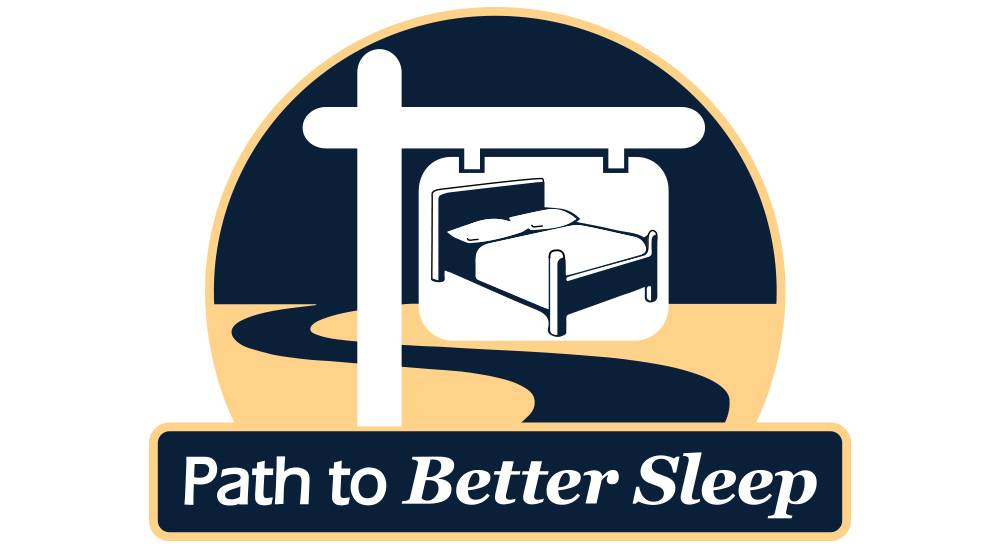If you have problems falling asleep, staying asleep or waking too early, you are not alone. When these sleep issues become an ongoing or chronic problem, they can develop into a condition called “Insomnia Disorder”- a condition many Veterans experience.
To find out if you have Insomnia Disorder, you can use VA’s Sleep Check-up and talk to your primary care provider about your symptoms. If it turns out that you have Insomnia Disorder, then Cognitive Behavioral Therapy for Insomnia (CBT-i) is the way to go. (Read more about CBT-i in our previous blog post in this series).
CBT-i is the recommended treatment for individuals with Insomnia Disorder. Although CBT-i is the best way to treat Insomnia Disorder, not all Veterans can come to a VA facility to meet with a provider to receive this treatment. It can be hard to find the time to visit a provider every few weeks. Luckily, studies have shown that online CBT-i effectively treats insomnia, and in some cases, it may be just as effective as in-person therapy to treat insomnia. To make CBT-i available to all Veterans, VA has developed an online version of CBT-i called Path to Better Sleep. Path to Better Sleep brings this effective treatment directly to Veterans and allows them to complete the course at their own pace.
Path to Better Sleep is a free, anonymous course that delivers the core components of CBT-i. The course takes advantage of natural sleep rhythms to improve sleep. It includes a sleep diary, personalized sleep scheduling, and relaxation exercises to better “set the stage” for sleep.
Path to Better Sleep’s Sleep Diary is used throughout the course to create an ideal sleep schedule or “sleep prescription.” It helps track the timing of sleep and is also used to update your sleep prescription as needed. The diary can be printed and shared with a health care provider at regular appointments.
Path to Better Sleep was created with Veterans in mind. Veterans helped develop this course and were kind enough to share their experience in videos found in the course. Path to Better Sleep can be used in many ways. If you are a Veteran experiencing sleep problems you can work with your health care provider to decide the best way to use the course, whether it is:
- Working with your VA provider on CBT-i and using Path to Better Sleep as another tool to support your treatment.
- Printing out your Sleep Diary and sharing your results with your provider.
- Completing the course at your own pace and following up with your provider during your regular appointments.
- Scheduling video check-ins with your provider to go over key points in the course and adjusting your sleep schedule if you need to.
To learn more about Path to Better Sleep, visit www.VeteranTraining.va.gov/insomnia. To learn more about insomnia and other sleep disorders, read the first blog in our series on sleep.
This is the final blog post in a series about understanding sleep disorders in Veterans and options for treatment.
Christi Ulmer, Ph.D., DBSM, and Carolyn Greene, Ph.D., work at VA Durham.
Topics in this story
More Stories
Veteran was trained to collaborate with fellow Airmen. Having his buddy’s six was important, and still is.
It’s essential for Veterans to take action and prepare for tornados and spring storms while staying informed.
Army Veteran Jeffery Williams' journey is a testament to resilience, perseverance and the power of innovation in transforming lives.






VA Sleep study showed no problems. CBT-I was no help! Without Ambien, 6:28 average sleep; Ambien added >> 15 << minutes to that average! I practice good sleep hygiene and it makes no difference. Maybe it is my age: 62, female.
Its now 2:00 am .30 minuts ago I stumbled. Upon Path to better sleep and have started my Diary. Iam a Veteran I now know I have Insomnia disorder. It has gotten worse . On October I will be 77 years young. I will overcome this “Disorder”.
I sleep 3 to 4 hours. And , while I’m supposed to be asleep hear everything around me. As if I’m just resting my eyes. Wife and kids can’t sleep around me , because of my snoring. I have not slept in the same bed with my wife in about a year and a half. Feel like an outcast. I sleep downstairs in the butlers room. Got nobody I trust to talk about it.
It seems my whole day and night rymthum has been disrupted. I feel very bad in the morning and can hardly stay awake much less focus or concentrate. About 5:00 pm I get my wind going and I am active and can complete tasks. This last until 2 to 3 am. I have tried going to bed early 9 to 10 pm but cycle is still there next day. I have sleep apnea and use a CPAP machine but this just started happening about six months ago. It is driving me crazy as everything is turned around.
I had a hard time sleeping ever since my brain tumor. My problem about talking to your provider is mine is a PA and I can’t get him to order a MRI for surgery over two years now. He can’t even get my meds ordered right let alone telling him about my sleep problems. I was almost falling a sleep driving home without almost wrecking. I just got blowed off as usual.
When your young you don’t think much about sleep. As you become older lack of sleep is so important.